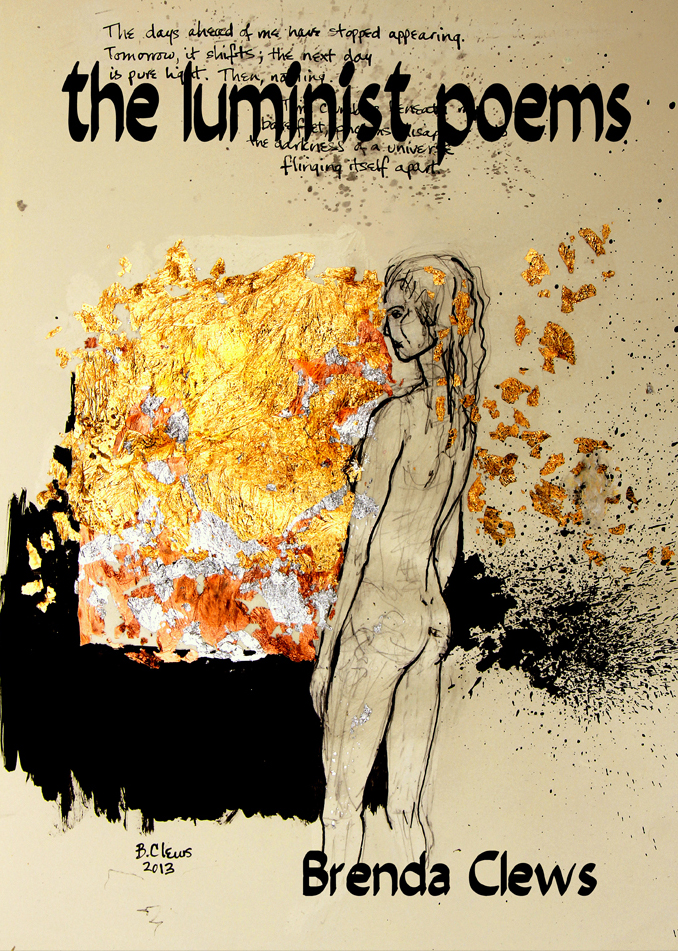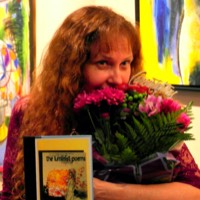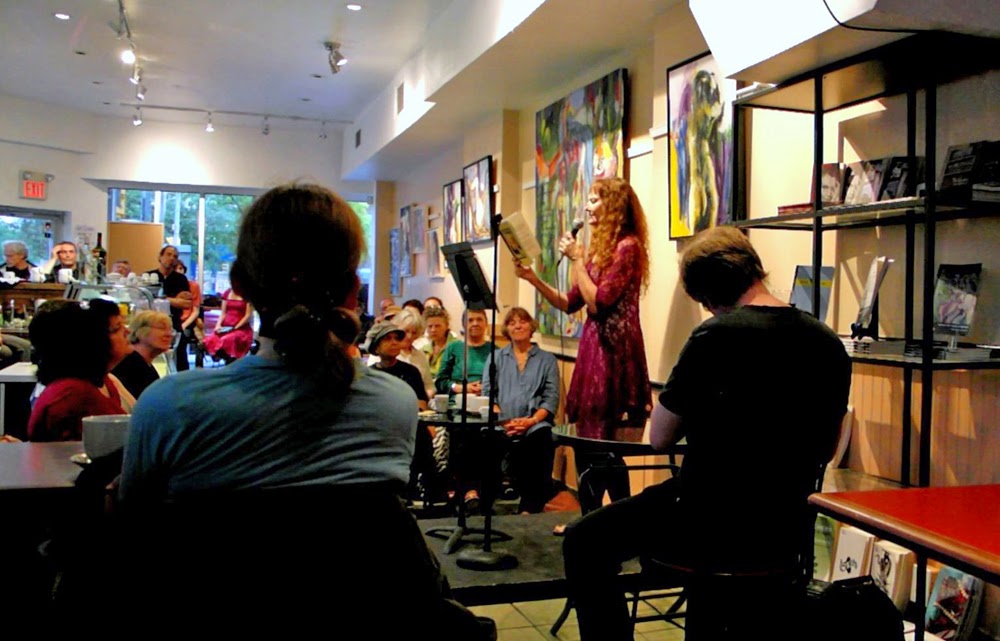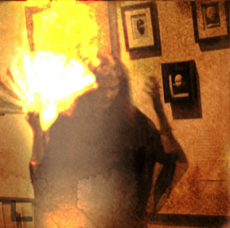the luminist poems


the luminist poems
the luminist poems, a romance, its dazzling and dangerous light, questions the paradoxes of who we are before the text blazes into visionary rapture
"Brenda Clews offers us a pellucid voice that presents and interprets so clearly, it is almost as if light is shining through each one of the magnificent images in these mysterious poems." -John F. Walter
Author: Brenda Clews
Cost: $20.00 CAD, each book is signed
Size: 6" x 8"; 15.24cm x 20.32cm
Hardcover: 39 pages
Publisher: LyricalMyrical Press, 2013
ISBN: 978-1-897275-84-9
SOLD OUT
'Ravishing Light' is a poem in the luminist poems
the luminist poems is a small hand-made chapbook produced by Luciano Iacobelli, who owns LyricalMyrical Press. His chapbooks are hard cover, usually in bright primary colours, and the poems are printed on fine paper. Each of his chapbooks is a jewel. With an initial print-run of 40 numbered copies, they are collector's items. I am honoured to be among the poets he has published.
'the luminist poems': LyricalMyrical Launch in May 2013, held at Q Space. Those are my paintings on the walls - I had a solo show at Q Space that month too.

Reviews of 'the luminist poems'

--Stephen Hatfield (a Canadian Choral composer, arranger, conductor)
“Destiny is ... the unfolding of the moments in the wholeness of everything that has or will exist.” (5) Clews’ Luminst Poems, her first chapbook, is an un-metaphysical journey into the whorled wonder of a world and a mind that is like “modulated magnetic and thermal fields of ionized plasma.” (6) Clews strives for a mystic’s vision of “the truth beneath illusion, of a pure reality amidst appearances.” (7) Clews rather sees “the bifurcation of opposing tendencies” in sunlight “caught in the long, white curtains...that plummeting, billowing fabric.” (8) Like the curtains, these poems work “through thick folds of language.” (8) They rise, plummet, billow and bifurcate into illusions and their corresponding reality always reaching into the depths of experience.
Postmodern spirituality is organic and grows from the rich, dark soil of sun and sea and earth and heliosphere where “the sun’s singing in fiery fountains of coronal loops” (10) lead us into the ecstatic (11) and we know the “love that swallows you as you breathe it, like fire dust.” (12)
Clews, also an accomplished painter, has an artist’s eye that sees “strands of perceptual DNA locking or unlocking ... particles and waves.” (14) These poems break open the secrets of perception and love. “Why can’t I be within you where thought emerges from drives and motives, little nuclear chain reactions.” (21) She know that “the ways we think of each other create what we are for each other” and wonders “why we can’t see each other.” (23)
The ecstasy is not in going out of oneself to unite with the Ultimate as the ancients assumed. Rather it is in going inward to face the possibility that “perhaps there is nothing at the centre” (6) except for “the never-ending process of witnessing my own life.” (24) This downward spiral or inward labyrinth is not Freud’s narcissism, although that is always a danger. If the centre is to be entered, if it must be empty the Minotaur of me-ism must be slain along the way. Clews wonders “What if recording my experiences causes the outcome?” (24) Quantum science tells us that every object affects all other objects around it and even far away. Therefore, every act affects the outcome of that act. This is karma.
Yet, Clews knows that “what they haven’t figured out is the flow of cohesive energy between us all. How we determine each other as we configure our perceptions and expectations of each other.” (15) Quantum has given us a solid basis for such observations. Wolfgang Pauli, who was in analysis with Carl Jung at the time, received the Nobel Prize for his contribution. Prior to this, these questions drove writers to drink and Nietzsche to suicide. What spares us is the contemplation of the organic reality of the everyday. “And in the middle of the meditation I arose silently chanting solar sound and began washing dishes.
Zen teaches: before Satori, chop wood, carry water; after Satori, chop wood, carry water. This, too, is Karma.
-review by Sharon Goodier
Thank you for visiting, and come back soon.